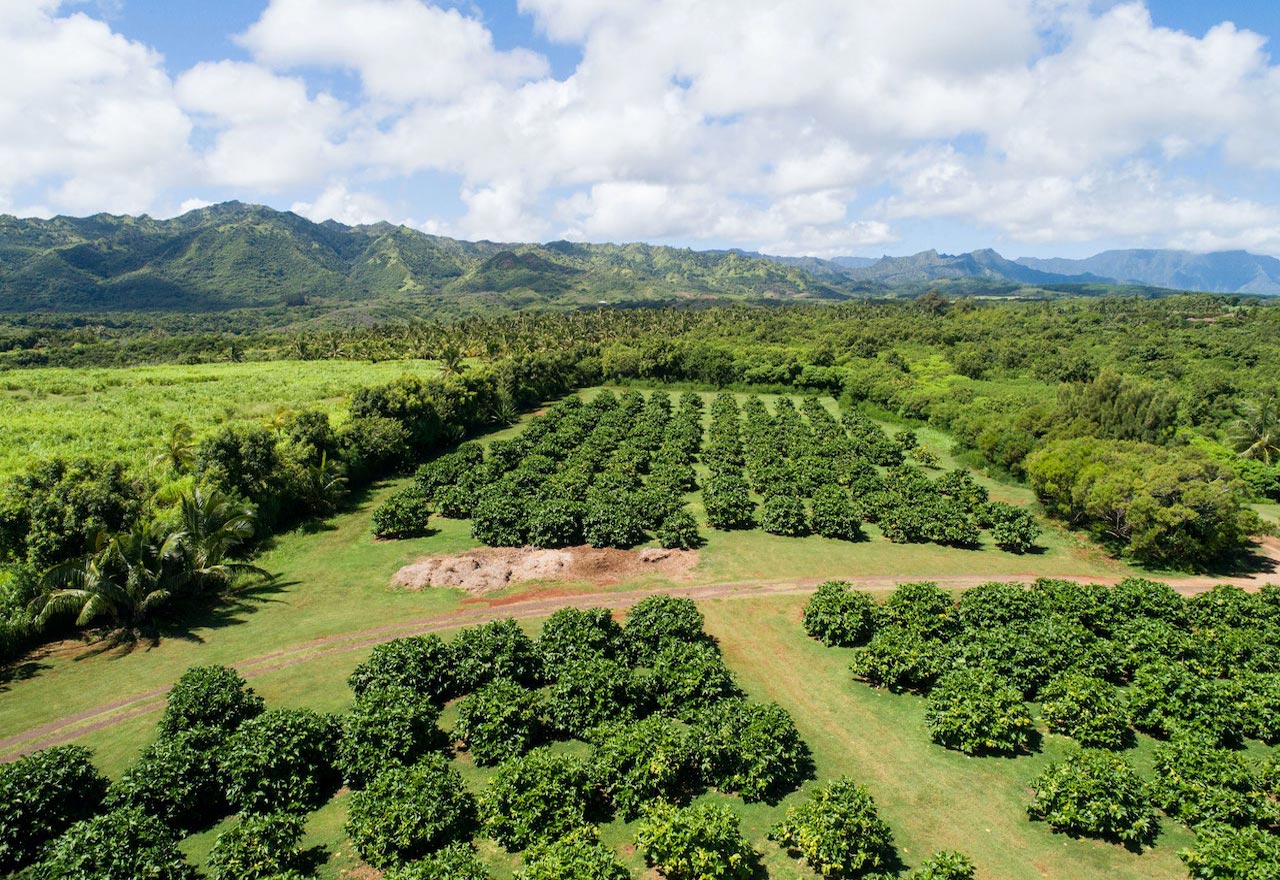Eighteen years ago, Steve Frailey boarded a Hawaiian Airlines flight with a suitcase brimming with 12 pounds of Indian blue worms.
Those worms play a vital role in Frailey’s 70-acre certified organic farm in Kauai, Hawaii that provides rich soil, fertile ground for fruit trees, and habitat for the endangered albatross.
As the co-founder, along with his wife, Richele, of Hawaiian Organic Noni, Frailey produces fruit leather and lotions made from “pure, unadulterated” organic noni.
The lotion is popular with athletes looking for a natural way to manage pain. The fruit leather is appealing to eaters who value the nutritional quality of dehydrated whole noni fruit, not to mention the vegan restaurant that discovered a flavor hack in the addition of diced Hawaiian Organic Noni fruit leather to its salads—raw noni tastes strikingly similar to blue cheese!
Behind those products are farmers passionate about organic production methods. Frailey has learned from experience, and a lot of patience, what works on the farm.
The journey started after a natural food store owner carrying a rotting bin of vegetables turned him onto vermiculture, leading him to the worm farm where he purchased his precious cargo.
After learning about the transformational power of worm castings to rejuvenate land, Frailey started adding one cup of worm castings to each noni tree along with the usual compost and mulch.
In the 15 years since, trees that were previously producing fruit 10 months out of the year (two cycles of five months of fruit, followed by a month of rest) transformed into full-time producers. “That’s 12 months out of the year just from adding the worm castings!” he says.
That success has inspired Frailey to share his vermiculture story and spend his evenings researching random facts about earthworms. “I was Googling last night. There are 6,000 different species of earthworms worldwide, 130 species in the US.”
Hawaiian Organic Noni’s earthworms are just one piece of a complex operation. Other vital ingredients include compost and plant matter from the pigeon pea, a plant with superior nitrogen-fixing qualities, grown from heirloom seeds purchased from Peace Seed in Oregon.
Every two days, Frailey turns his piles of compost, injecting oxygen to breed good bacterium. Back and forth the rows go for four weeks, until the plant matter has transformed into superior compost for the farm.
Every six months, he spreads compost and one cup of worm castings around 18 acres of noni trees, protecting the organisms with a heavy layer of mulch made from shredded coconut palm fronds.
The castings also play an important role in his compost tea, made from one gallon of compost and one cup of worm castings.
“No,” he routinely tells the people who visit his operation, “you don’t drink it.” But his plants do. He sprays the trees in the afternoon or evening so the leaves can suck up the nutrients all night long.
What Frailey doesn’t do on his farm is just as crucial to its ability to thrive. He farms less than half of his total operation, leaving the valley for birds and animals, and a stretch of beach for the Hawaiian monk seal, thought to be the oldest seal in existence, to sun bathe.
“There’s a whole balance in our farm,” he says. “It’s not about denuding everything.” Instead of picking his trees bare, he allows some fruit to fall on the ground to be transformed by the burrowing invertebrates whose castings provide nutrients that allow the cycle to continue.
The fruit feeds the worms, who produce more worm castings, and the mulch gives the perfect environment for the worms to thrive, all of which keeps the trees healthy, allowing them to grow more fruit. “All I’m doing is mimicking what nature has done for millennium in the forest floor.”


